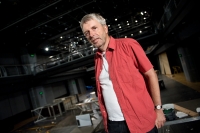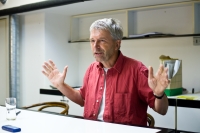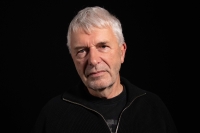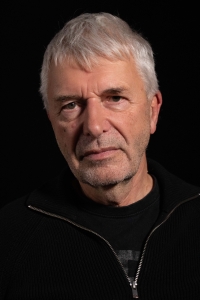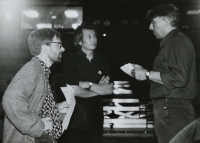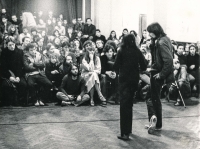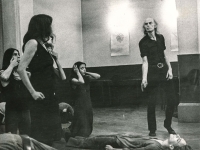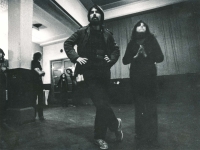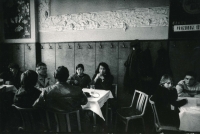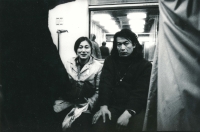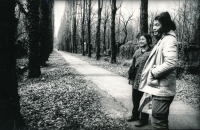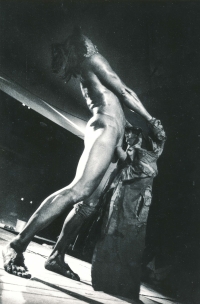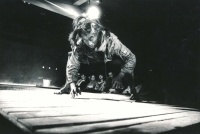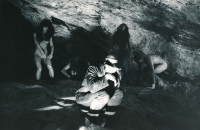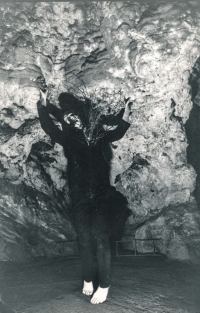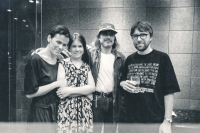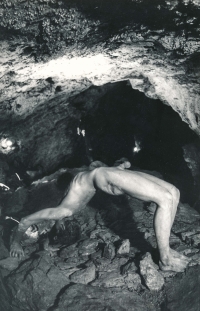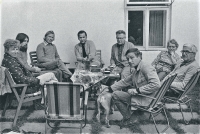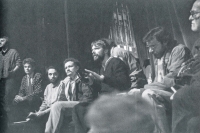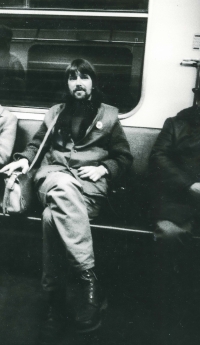Theatre explores democracy as in a laboratory

Stáhnout obrázek
Ondřej Hrab was born on 26 July 1952 in Olomouc into the family of university teachers Libuše and Svatopluk Hrab. After the invasion of the Warsaw Pact troops, the communists forbade his parents to teach. At the age of 16, he himself considered the invasion to be a lost hope. A year later he attended the funeral of Jan Palach. After graduating from high school, he was unable to choose a field of study of his own choice for cadre assessments reasons. In 1970 he entered the Prague University of Economics and Business (VŠE), where he got into sociology. His younger sister did not get into university at all during the normalisation period and married in Holland, where she could study. In 1976, he went to Poland with friends where he saw the initiation performance of Bread and Puppet troupe, and a year later, while visiting his sister, he saw the famous performance Einstein on the Beach by musician Philip Glass. He decided to bring similar performances, despite the dangers, to Prague. From the mid-1970s he was active in non-conformist cultural activities. From 1985 to 1987 he was the dramaturge and manager of the HaDivadlo theatre in Brno. He initiated and secretly organised conspiratorial performances by foreign artists The Living Theatre and dance performances by Min Tanaka. During the Velvet Revolution of 1989, he organised trips of well-known actors from the Theatre Institute to cities where they lectured about the fall of communism and the rise of democracy. In 1991, he founded the Archa Theatre, which he ran until 2023. He focused on documentary and social theatre.
